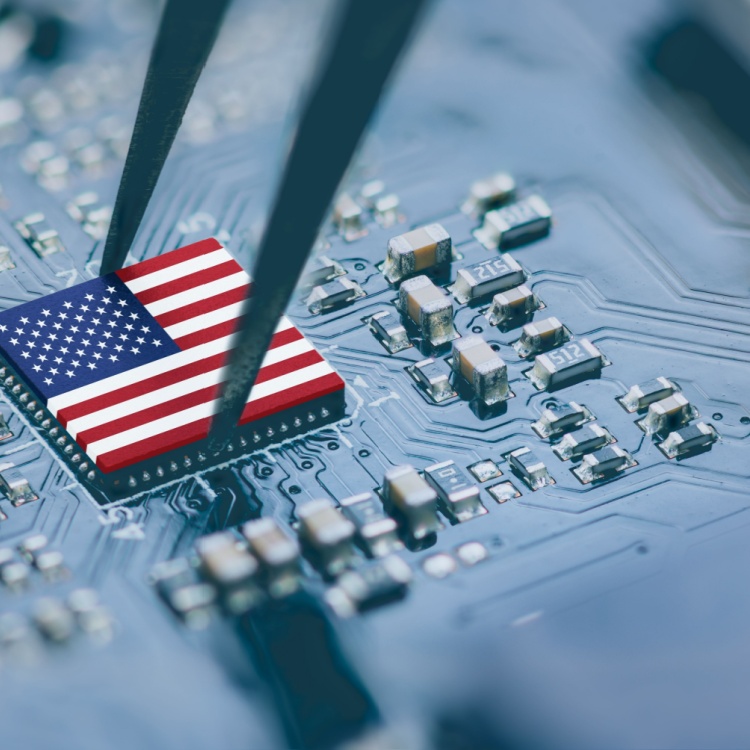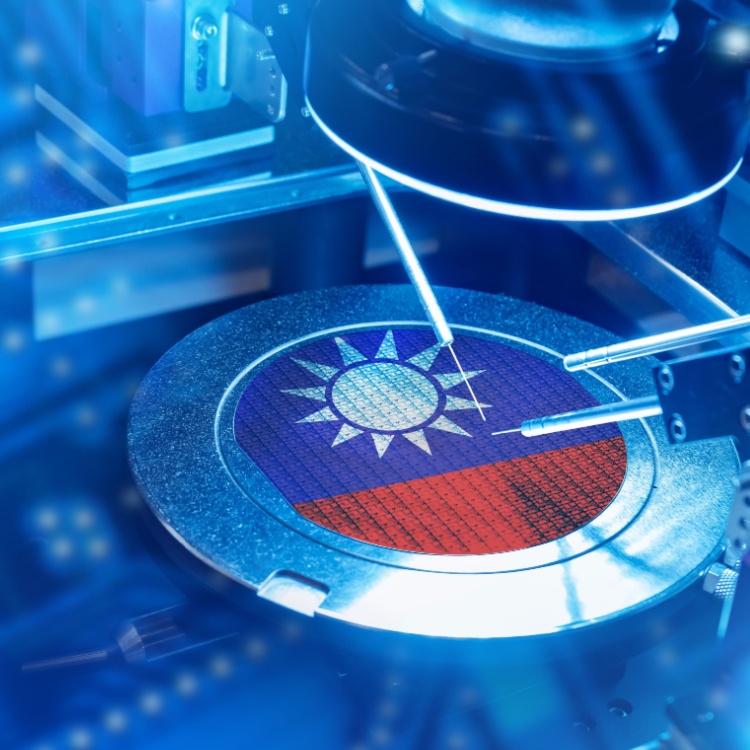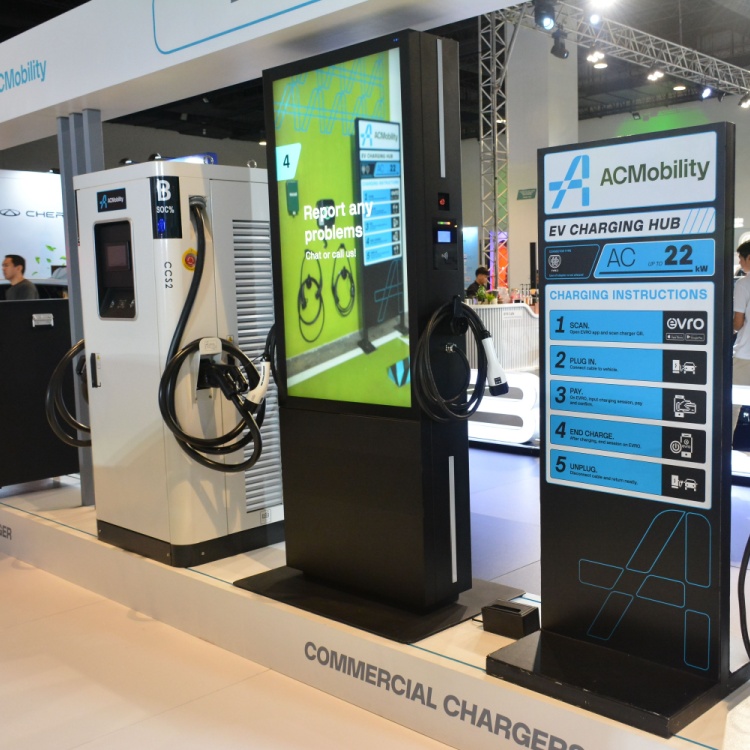Electric Vehicle Battery Swapping: Boom or Bust?

Electric vehicle (EV) battery swapping stations are staging a comeback in China, the United States, and India. Will the latest proponents succeed where EV giant Tesla and startup Better Place failed?
High upfront costs, range anxiety, and the time-consuming process of battery charging are some of the hurdles for electric vehicle (EV) adoption. Several startups and established tech companies think EV battery swapping stations are the solution.
What is an EV battery swapping station?
From hours to minutes--this is the promise of EV battery swapping. EV drivers can quickly swap or switch their vehicle’s discharged battery for a fully charged one. This means no more delays waiting for the EV’s battery to charge.

An attractive solution with a rocky past
EV battery swapping is a straightforward process that seems to have several advantages for its users--so much so that two companies tried to get it off the ground years ago.
Founded in 2007, an Israeli startup called Better Place raised around USD 900 million in funding for EV battery swapping but went bankrupt in 2013. Projected to cost USD 500,000 each, the company’s robotic battery swapping stations ended up costing USD 2 million each. Its attempt to launch an EV and battery swapping company was dubbed “the most spectacularly failed technology start-up of the 21st century” by Fast Company magazine.
In 2013, EV giant Tesla unveiled 90-second battery-swapping technology on its Model S. The company invited 200 or so Tesla owners to its first--and ultimately, last--swapping station in California.
“I think there were a total of four or five people that wanted to do that, and they all did it just once,” Tesla CEO Elon Musk told shareholders in 2015. “So, okay, it's clearly not very popular.”
Given these failures, why are EV battery swapping stations making the news again? From China and the United States to India and Taiwan, startups and tech companies are banking on the rise in demand for EVs and the rapid emergence of shared e-mobility.
Let’s take a look at the current industry players.
Gogoro: swapping for scooters
In densely populated urban areas, micro-vehicles such as e-scooters are a fast and affordable mode of transport. In these cramped cities, parking spaces for charging are a luxury, making EV battery swapping stations the smarter and easier option.
Founded in 2011, Gogoro is a Taiwanese e-scooter company that developed a battery swapping platform for light EVs such as scooters, motorcycles, and mopeds. Gogoro now has almost 2,000 battery swapping stations, which are called GoStations. Open 24/7, GoStations now outnumber gas stations in six major metropolitan areas in Taiwan.
For a monthly subscription, users have access to this vast network of GoStations. The Gogoro app guides them to the nearest GoStation for a six-second swap and go. This business model known as “Battery as a Service” or BaaS enables Gogoro to reduce the initial purchase price of their smart scooters, making the switch to electric scooters and motorcycles more appealing for riders.
Check out the video below to see how the Gogoro Network Battery Swapping Platform works.
Following its success in Taiwan, Gogoro is bringing its smart e-scooter and battery swapping technology to new shores: India and China. Last April, Gogoro announced a strategic partnership with Hero MotoCorp, one of the world’s largest two-wheeled vehicle manufacturers and a market leader in India.
The partnership includes a joint venture to establish a battery-swapping network in India, where one in three Indians use two-wheelers for their daily commute to and from work. They will also collaborate on developing Hero-branded, Gogoro network-powered electric vehicles.
Less than a month after announcing its partnership with Hero, Gogoro set its sights on another new market: China.
Dachangjiang Group (DCJ), one of the top gas-powered motorcycle manufacturers in China, and Yadea, one of the biggest makers of electric two-wheeled vehicles, will develop “a range of two-wheel vehicles built for the Gogoro Network battery swapping platform.”
(Also read: Micromobility: The Future of Urban Transport)
Ample: a focus on fleets
In the United States, San Francisco-based startup Ample hopes to give the EV battery swapping industry a turbo boost. But unlike past proponents, Ample may have more success as it focuses on a specific EV sector: commercial fleets and taxis.
Ample, which has partnered with ridesharing company Uber, operates five battery swapping stations in the San Francisco Bay Area--all of which are specifically for Uber drivers. The state of California recently approved the country’s first standard to shift rideshare networks such as Uber and Lyft to electric power by 2030. This landmark ruling could spell good things for battery swapping.
On the opposite side of the U.S. Coast, Ample has launched a partnership with Sally, a New York City-based company that rents out EVs for ride-hailing, taxi, and last-mile deliveries. It has provided New York City with its first yellow taxi EV fleet. Ample and Sally will launch five to ten stations in New York City by the fourth quarter of 2021, with plans to expand into other markets next year.
Time is money for fleets. Commercial vehicles only generate revenue when they are in operation, so time spent charging their batteries is money down the drain. Most fleet driving is planned, with vehicles driving around the same number of hours every day. Fleet operators use the same vehicles, which drive in a limited territory and often return to their base of operations. Given its fast turnaround time, swappable EV batteries could be a quick and cost-effective option.
“Ample's battery is a drop-in replacement for the OEM battery and does not require any modification to the car (either hardware or software),” Khaled Hassounah, Ample’s CEO and founder told Input via email. “We are the first modular, battery-swapping EV network to serve multiple brands. Our modular batteries stack like Lego, so they can fit into any electric vehicle model.”
Can Ample convince American EV drivers to make the swap? Watch this video to hear from Ample co-founders and industry experts.
(Also read: Innovations in EV batteries)
Nio: successful swapping in China
China accounts for 44% of all the EVs in the world--that’s more than 4.5 million vehicles in use. In this flourishing market, Chinese EV manufacturer NIO is achieving success with swapping.
Enabled by over 1,400 patented technologies, NIO Power Swap lets users quickly switch to a fully charged EV battery. The company claims the process takes only three minutes.
NIO has built 301 NIO Power Swap stations in China and has completed more than 2.9 million EV battery swaps. Founded in 2014 and headquartered in Shanghai, NIO is using the BaaS (Battery as a Service) business model. NIO clients can buy an EV without a battery, lease a battery best suited for their needs, and pay a corresponding monthly subscription fee.
Taking its first step overseas, NIO is setting its sights on the European country with the most number of EVs: Norway. NIO plans to build four battery swapping stations around Oslo by the end of this year. It will build additional swapping stations in the Norwegian cities Bergen, Trondheim, Stavanger, and Kristiansand in 2022.
Watch this video by Bloomberg on NIO’s battery swapping technology and business model.
Opportunities and challenges
Last year, the global EV battery swapping market generated USD 148.2 million in revenue. It is expected to exhibit huge expansion during 2021–2030, according to P&S Intelligence.
During the forecast period, the commercial vehicle category is projected to register the highest CAGR in the market. Geographically, Asia-Pacific (APAC) is forecasted to dominate the EV battery swapping market.
The global EV battery swapping market is projected to reach USD 852.6 million by 2030, registering a CAGR of 24.4%. According to Allied Market Research, the rising demand for electric vehicles, coupled with the lack of adequate public charging facilities, could drive market growth.
However, one of the biggest challenges is a lack of standardization of EV battery packs.
“The design of each automaker’s batteries is deeply entwined with unique vehicle architectures that support vast lineups of car models. Even within a single automaker, batteries are bringing varying module counts and orientations to maximize energy storage,” writes Lawrence Ulrich for IEEE Spectrum.
“Modern packs are designed as integrated, weight-bearing structural elements to pass rigorous crash testing,” Ulrich continues. “None are designed for one-size-fits-all or easy removal and reinstallation.”
China, however, is willing to standardize EV battery swapping. It recently approved the first official national standard and safety guidelines for swappable EV batteries. At a press conference last year, Xin Guobin, Vice Minister of China’s Ministry of Industry and Information Technology (MIIT), cited several reasons for the government’s support of EV battery swapping. These included a reduced cost to vehicle buyers, quicker refill time, and cheaper charging during off-peak hours.
"China aims to have 80 percent of new vehicles sold in regions with heavy air pollution to be new electric vehicles from this year, and battery swapping provides an approach to decarbonize heavy transport with quick refueling times in addition to facilitating China's transition to green cars by 2035," said Mi Siyi, an analyst with BloombergNEF.
Will EV battery swapping go big in the West, where capitalism is the name of the game? It’s still up for debate. But if this battery technology continues to thrive in Chinese and Asian markets, and startups like Ample can make it work for the American fleet market, then maybe the EV battery business will boom instead of go bust.
As one of the Top 21 EMS companies in the world, IMI has over 40 years of experience in providing electronics manufacturing and technology solutions.
We are ready to support your business on a global scale.
Our proven technical expertise, worldwide reach, and vast experience in high-growth and emerging markets make us the ideal global manufacturing solutions partner.
Let's work together to build our future today.
Other Blog






